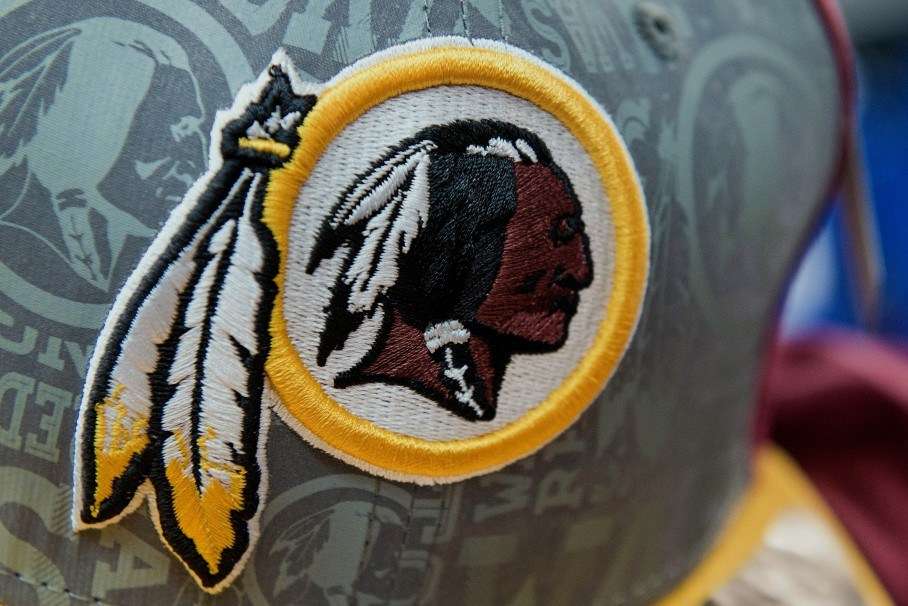The Volokh Conspiracy
Mostly law professors | Sometimes contrarian | Often libertarian | Always independent
ACLU argues that cancellation of Redskins trademark violates the First Amendment

The Patent & Trademark Office held last year that the Redskins' federal trademark must be canceled, because a federal statute bars registrations of marks that "may disparage … persons, living or dead, institutions, beliefs, or national symbols, or bring them into contempt, or disrepute." This doesn't bar the Redskins from using their name, but it does reduce their ability to use trademark law to stop various infringing Redskins gear. I have tentatively argued that this exclusion of "disparag[ing]" trademarks violates the First Amendment:
My tentative view is that the general exclusion of marks that disparage persons, institutions, beliefs, or national symbols should be seen as unconstitutional. Trademark registration, I think, is a government benefit program open to a wide array of speakers with little quality judgment. Like other such programs (such as broadly available funding programs, tax exemptions, or access to government property), it should be seen as a form of "limited public forum," in which the government may impose content-based limits but not viewpoint-based ones. An exclusion of marks that disparage groups while allowing marks that praise those groups strikes me as viewpoint discrimination. But I'm not sure that courts will ultimately see this my way; so far they haven't been inclined to do so, precisely because the exclusion of a mark from federal registration leaves people entirely free to use the mark.
And the ACLU has just taken the same view in the appeal of the PTO Redskins decision. Here is an excerpt:
Few principles in constitutional law are as settled as the First Amendment's prohibition on government regulation of private speech based on viewpoint. The courts have never blessed a government program that permits government actors to determine the acceptability of a speaker's viewpoint and then condition benefits based on that determination. The First Amendment harms are magnified when such regulation of speech rests on vague and subjective terms that provide no meaningful notice to speakers as to which speech the government will find acceptable, and thereby risk - and in this case, ensure - inconsistent and discriminatory application.
These evergreen principles hold no less true simply because they arise in the context of trademark law. Yet Section 2(a) of the Lanham Act, 15 U.S.C. § 1052(a), not only condones but mandates viewpoint-based discrimination in the provision of trademark registration. Section 2(a) prohibits the registration of any trademark interpreted by the U.S. Patent and Trademark Office ("PTO") to be immoral, scandalous, or disparaging to any persons, institutions, beliefs, or national symbols. It is indisputable that registration of a mark provides substantial benefits to a trademark holder; it is also true that many trademarks involve expressive speech and association. Therefore, by authorizing the government to deny registration of certain marks because of a viewpoint-based determination about the character of expressive speech, Section 2(a) violates the First Amendment.
This case arose when the PTO scheduled the registered trademark of the National Football League team the Washington Redskins - a mark that has been in use for decades - for cancellation in response to a petition from private individuals. In the administrative proceeding, the government agreed with the petitioners that the term "Redskins" is disparaging to Native Americans. This finding is eminently understandable. The term "Redskins" is frequently criticized as outdated, racist language. Indeed, the ACLU has joined calls for the team to change the name and to stop using a word that perpetuates racism against Native Americans. And there is little doubt that many Native Americans view the word "Redskins" as at least problematic, if not outright racist.
But the question of whether certain speech is distasteful is entirely distinct from the question of whether the government can constitutionally disadvantage it for that reason. Under the First Amendment, viewpoint-based regulation of private speech is never acceptable, regardless of the controversy of the viewpoint. The Lanham Act violates this bedrock principle by creating a formal system of government-provided benefits and then distributing those benefits based on a system of explicit viewpoint discrimination. It is simply not within the government's authority to determine what speech is too "scandalous" to merit trademark protection. The Lanham Act's determination of trademark propriety "is inconsistent with the maintenance of a robust and uninhibited marketplace of ideas" - especially so in the trademark context, where a literal marketplace allows members of the public to register protest through boycotts or other traditional First Amendment means.
By scheduling the cancellation of the Redskins' trademark because the word expresses a disparaging viewpoint, the government violated the First Amendment. This Court should end this formal system of viewpoint discrimination by issuing a narrow ruling that strikes down those portions of Section 2(a) of the Lanham Act that prohibit registration of "immoral," "scandalous," or "disparag[ing]" marks.
Thanks to Prof. Ron Collins (Concurring Opinions) for the pointer.


Show Comments (0)